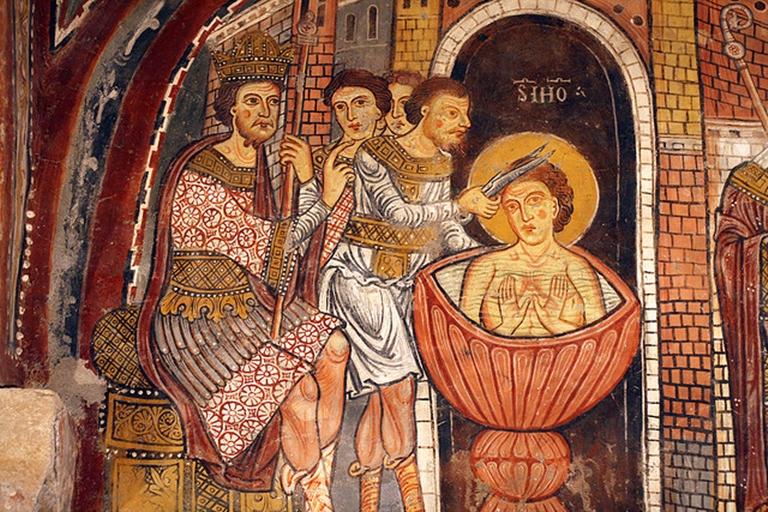In July 2018, Viktor Orbán gave his traditional annual speech in Tusnádfürdő, underling the need to strengthen Christianity, building Christian democracy in Hungary, while fighting liberalism, to counter the rivalling Muslim faith and its community. Christian Democrats surely cringe upon hearing this line of thought, leaving us all to wonder what an illiberal Christian democracy ought to look like.
For most of us Christian democracy constitutes a set of political-philosophical ideas rooted in Christian beliefs and values, which even happen to appeal to non-believers or to those of other faiths.
The sweeping success of Christian democratic parties in the 20th century was undoubtedly founded on their ability to grasp and translate the values of a pre-world-war order and inserting them into democratic–liberal politics. This happened, while emancipating themselves from ecclesial influence and democratizing day-to-day political decision-making.
Nevertheless, Hungary and it’s 2/3 majority ruling party Fidesz seems to want to turn back the wheel of time, calling for a Christian “democracy” in an illiberal state (the term illiberal democracy was coined by Orbán in 2014), bound closely to church institutions and putting Christianity and faith into the political spotlight.
An ideological conflict sparked between Chancellor of Germany, Angela Merkel, and Orbán, when the Hungarian prime Mmnister recently stated that Christian democracy may only exist if illiberal, countering a comment of the chancellor a few years back, who refused to acknowledge the concept of an illiberal democracy, saying “I personally have difficulties with connecting illiberalism to democracy”, assuring that her Christian democratic party is, indeed, liberal.
Although the Hungarian ruling party went through almost adventurous political turnarounds – from being a well- established Hungarian liberal youth party to a nationalistic and fairly right-wing political power – Fidesz and its members always had some sort of connections to the Hungarian Reformed and Catholic Church.
A couple of the now high-ranking Fidesz functionaries started out their careers in church and came to join Fidesz or began sympathizing with the party in the mid-1990s. Those ties left marks on the ideological evolution of the party, which since 2006 forms a coalition with the Christian Democratic Peoples’s Party, KDNP.
Although the KDNP’s ideological forefather, István Barankovics, had more of a classical Christian democracy in mind, the Fidesz-KDNP coalition started steering more and more towards a Christian democracy hostile to liberalism, leaving behind the idea of secularism.
Since then, the Catholic and – even more so – the Reformist Church, and other established traditional churches received considerable financial means from the state, while institutions such as schools and parts of university campuses were put under church administration.
A conflict arose during the election campaign, when László Németh, the parish priest of the city of Hódmezővásárhely, during a mass called upon it’s congregates to vote for the candidate of Fidesz in an emblematic by-election of the city.
László Kiss-Rigó – the Bishop hierarchically standing above Németh – was clearly unimpressed by the public uproar concerning the events in his diocese, as he has gained prominence with public remarks astonishingly similar to the catchphrases Fidesz uses in its campaigns.
During the past several years, dozens of similar stories caught the eye of the Hungarian media, leaving people to wonder what kind of shady business the Hungarian church and political leaders are being involved in.
Interestingly, it is not only traditional churches the Hungarian government is fond of. Felház (Upper Room – the name is a reference to the site of the Last Supper), a contemporary religious movement led by young and hip people in their 20s (amongst them Gáspár Orbán, the son of Viktor Orbán) and another church called Hit Gyülekezete (Faith Church) gaining popularity in the 1990s have been supported by the government establishing a similar give and take dynamic as is the case with the traditional churches
In the last years, the Fidesz-led autocratic Hungarian state has robbed without hesitation the autonomy of democratic institutions – the media, the civil society, universities, and the academic community – to secure its political influence and eradicate outer-party political powers.
Nevertheless, Fidesz never got rid of their “enemies” from one day to another, but rather did so slowly building-up parallel institutions, media or academia. The “last man standing” seems to be the traditional churches, but only time will tell how long Fidesz succeeds in keeping their leadership in line with its political agenda.
As for now, traditional churches cooperate with the Orbán regime, aligning on common goals and interests. Thought, it should not be forgotten that for churches with an influence – such as the Catholic Church – it is easy to make a U-turn, able to catapult the government into a political crisis within a heartbeat. This puts Fidesz into a tricky situation, as their political-power strategy is based on taking out political actors whot may cause harm to their political agenda.
Nevertheless, if traditional churches happen to become a problem in the future, Viktor Orbán surely could ask his family members for a favor, letting his son’s church jump in, giving shelter to a party-led Hungarian church and faith.



